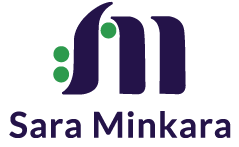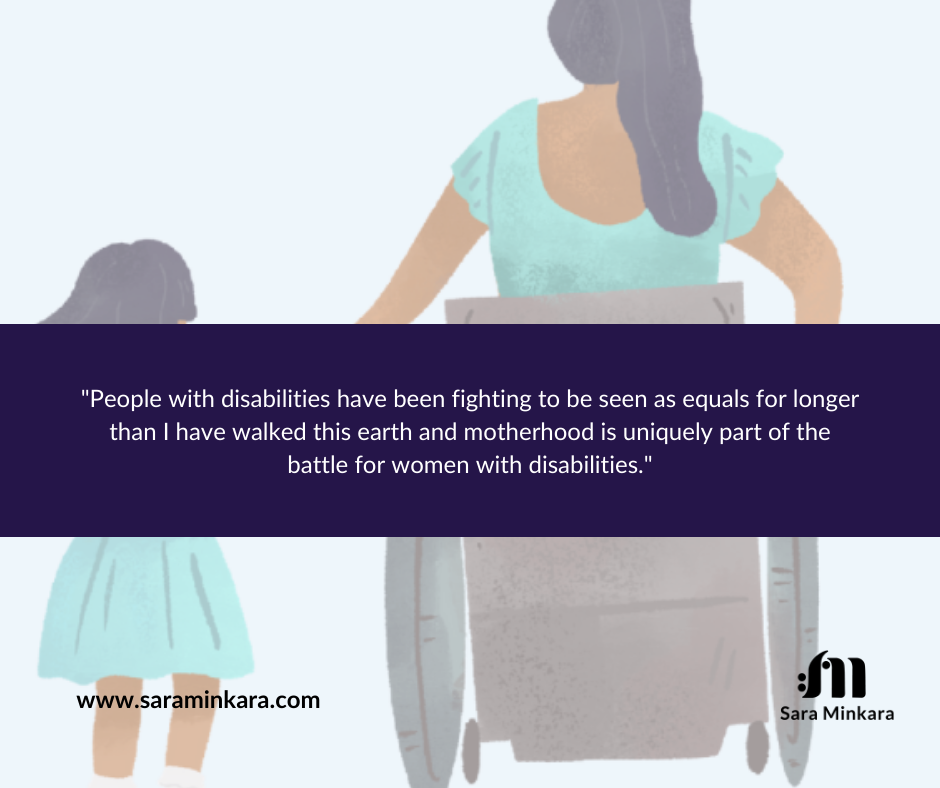Biases Towards Mothers with Disabilities
“The clock is ticking!”
This phrase is all too common for women to hear at some point in their lives, and I adamantly believe this unsolicited piece of advice is blatantly sexist. While I am grateful to have yet to be asked this question, it’s not because everyone around me is acutely aware of how intrusive this statement is, but rather because I have a disability.
People with disabilities have been fighting to be seen as equals for longer than I have walked this earth and motherhood is uniquely part of the battle for women with disabilities. In the infamous US Supreme Court case Buck v. Bell in 1927, a legal precedent was set stating states may sterilize inmates of public institutions. At that time, the court argued that “imbecility, epilepsy, and feeblemindedness are hereditary, and that inmates should be prevented from passing these defects to the next generation.” (The Embryo Project Encyclopedia)Why would the US Supreme court justify this? They said this ruling 1) protected women with disabilities, 2) protected children with disabilities, and 3) protected society.
We may say, “well, this was in 1927 and Americans don’t think these antiquated ways anymore.” Guess what, this law has YET to be overturned, making it Constitutional!
Although we are nearly 100 years after the initial 1927 court ruling and there are far less women with disabilities forced to undergo sterilization, we cannot negate the grotesque human rights violation that this has been or the continued societal stigma that is still present today for this portion of our population.
According to Michael Stein, Co-founder and Executive Director of the Harvard Law School Project on Disability, “Mainstream society’s discomfort with the notion of people with disabilities’ relational intimacy is well documented. One poll found that 46% of non-disabled people stated they ‘would be concerned’ if their teenage son or daughter dated a person with a disability, and 34% ‘would be concerned’ if a friend or relative married a person with a disability.”
When a person without a disability marries someone with a disability, it’s all too often viewed through the lens of “oh bless your heart, you’re such an angel.” Why? This is once again demonstrating our bias tendencies. Individuals that marry PWDs are not doing anyone a favor! That type of commentary perpetuates the idea that PWDs are a burden or charity cases, when in reality, we are the farthest things from that.
Even if a woman with disabilities navigates the questions around marriage, what about the “other” topic. Questions like “How will you handle a child?” or “Are you going to be able to be a mother?” Even worse yet, when people don’t ask at all simply because all they see is the disability. Consider this… these questions and perceptions 1) are NOT something you’d ask a woman without a disability, and 2) immensely intimidate women with disabilities.
This world already has its challenges for women… now imagine an additional layer of doubt on top of everything else.
Carrie Killoran, a mother with a physical disability, stated, “Before I got pregnant, I was told by MY FATHER that it would be irresponsible of me to have a baby, because I would be an unfit mother. This is the view of most of society. On the contrary, I turned out to be one of the fittest mothers I know. The ability to be a good mother does not reside in the ability to chase around after a toddler, nor in the ability to teach your child how to ride a bike. Neither does it include protecting your child from being teased about her parent’s disability; all children find something to tease each other about and a sturdy, self-confident child will emerge unscathed.”
Mother’s Day was last Sunday, May 9. Pause for a moment to be mindful that all mothers aren’t met with the same grace and acceptance. Any woman should be allowed to make their own decision if becoming a mother is the right decision for them or not. Motherhood is terrifying for a lot of women and the last thing any woman needs, either with a disability or without, is external voices contributing to preexisting self-doubt. The unconditional love that a parent in any shape or size has for their children will triumph over most challenges and trust that parents have their children’s best interest in mind. The decision to become a mother can be hard, so let’s support to one another through the process and celebrate one another regardless of the final decision.


